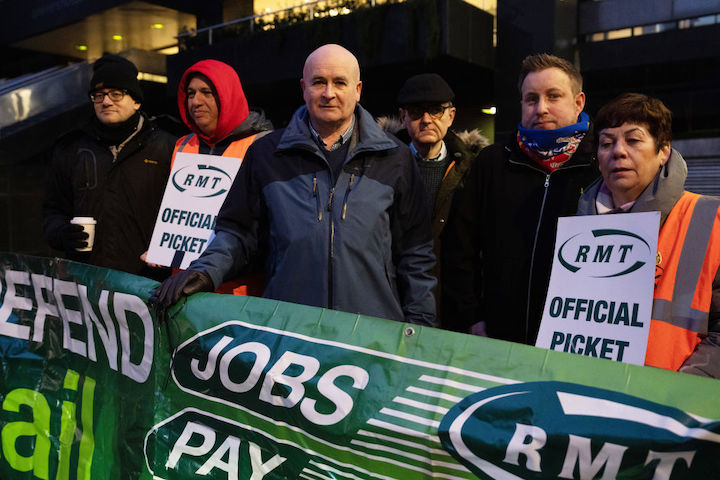With five continuous days of rail strikes this week, it’s beginning to look like we’re reaching an endgame. Someone, or something, has got to give. And it must be becoming gradually clear to the RMT’s Mick Lynch – and the other unions involved – that they won’t necessarily be the ones left standing at the end. They might like to think they have the power to bring the country to its knees, but the past few months has shown the folly of believing that. Even before the current strikes, rail passenger numbers were only three-quarters of what they were before the pandemic. All sorts of organisations have learned to work remotely when they need to. Nor, in contrast to the 1970s, do we rely on coal trains to keep power stations working. The only growth in rail travel at the moment is for leisure. London theatres and restaurants are suffering deeply, but that won’t bring down the economy.
Whichever way you look at it, our railway system can’t carry on as it is
These are the essential statistics showing why no government could agree to above-inflation pay rises for rail workers. For starters, they already get paid well: the median salary for a rail worker is £43,747 – £10,000 more than for the workforce as a whole. Yet this is no boom industry. In the year to March, the taxpayer coughed up £13.3 billion in subsidies, while the rail industry took just £5.8 billion in ticket revenue.
An unnamed government source was quite right to warn the unions yesterday that their strikes are an act of ‘self-harm’ – that the loss of passengers from the railway will accelerate as a result. But it would be far better if the government started a wider debate: do we still need railways at all? And if so, what sort of an industry do we need? I have never been a fan of the idea sometimes advanced in Conservative circles that we should pave over railway lines and convert them into express coach-ways. But no one can deny that it is an option. Such an arrangement would allow genuine competition in public transport – which privatised rail travel has failed to provide – and end the threat of strikes. However, it would greatly reduce the speedy and quality of travel, making it harder to attract motorists from their cars.
But whichever way you look at it, our railway system can’t carry on as it is, with unions endlessly bidding up pay through strike action and private rail companies forever being bailed out with subsidies to the point they are still able to cream off large profits – even when passenger numbers are in freefall. The sad truth is that, in this, case privatisation has failed to act as it should. It has neither brought down fares nor ended strikes. Train operating companies have proved even worse at handling militant unions than British Rail. The latter did, at least, succeed in pushing through driver-only operated trains: something which has stalled as train companies have capitulated to the unions. Rail automation, in my mind, would offer a far better future for public transport than conversion of rail to coach expressways. We would be better off now if the government had pursued its plans for Great British Railways, which would have been in a position to pursue total automation of the Underground and some commuter routes – and driver-only operation on most other routes.
This would transform the economics of running railways and make strikes much less likely. It would, of course, also bring the government into direct conflict with the unions. But as we saw with Margaret Thatcher’s showdown with the NUM in 1984/85, a well-prepared government can defeat the most militant unions. Failure to tackle the problem head-on merely invites further strikes down the line.







Comments